- Home
- Books
- Sale
- Let's Read More FLAT 15% OFF
- Churchill, Master and Commander - Winston Churchill at War 1895–1945
Churchill, Master and Commander - Winston Churchill at War 1895–1945
By: Anthony Tucker-Jones
-
Rs 2,336.75
- Rs 3,595.00
- 35%
You save Rs 1,258.25.
Due to constant currency fluctuation, prices are subject to change with or without notice.
From his earliest days Winston Churchill was an extreme risk taker and he carried this into adulthood. Today he is widely hailed as Britain's greatest wartime leader and politician. Deep down though, he was foremost a warlord. Just like his ally Stalin, and his arch enemies Hitler and Mussolini, Churchill could not help himself and insisted on personally directing the strategic conduct of World War II. For better or worse he insisted on being political master and military commander. Again like his wartime contemporaries, he had a habit of not heeding the advice of his generals. The results of this were disasters in Norway, North Africa, Greece and Crete during 1940-41. His fruitless Dodecanese campaign in 1943 also ended in defeat. Churchill's pig-headedness over supporting the Italian campaign in defiance of the Riviera landings culminated in him threatening to resign and bring down the British Government. Yet on occasions he got it just right: his refusal to surrender in 1940, the British miracle at Dunkirk and victory in the Battle of Britain, showed that he was a much-needed decisive leader. Nor did he shy away from difficult decisions, such as the destruction of the French Fleet to prevent it falling into German hands and his subsequent war against Vichy France.
In this fascinating new book, acclaimed historian Anthony Tucker-Jones explores the record of Winston Churchill as a military commander, assessing how the military experiences of his formative years shaped him for the difficult military decisions he took in office. This book assesses his choices in the some of the most controversial and high-profile campaigns of World War II, and how in high office his decision making was both right and wrong.
From his earliest days Winston Churchill was an extreme risk taker and he carried this into adulthood. Today he is widely hailed as Britain's greatest wartime leader and politician. Deep down though, he was foremost a warlord. Just like his ally Stalin, and his arch enemies Hitler and Mussolini, Churchill could not help himself and insisted on personally directing the strategic conduct of World War II. For better or worse he insisted on being political master and military commander. Again like his wartime contemporaries, he had a habit of not heeding the advice of his generals. The results of this were disasters in Norway, North Africa, Greece and Crete during 1940-41. His fruitless Dodecanese campaign in 1943 also ended in defeat. Churchill's pig-headedness over supporting the Italian campaign in defiance of the Riviera landings culminated in him threatening to resign and bring down the British Government. Yet on occasions he got it just right: his refusal to surrender in 1940, the British miracle at Dunkirk and victory in the Battle of Britain, showed that he was a much-needed decisive leader. Nor did he shy away from difficult decisions, such as the destruction of the French Fleet to prevent it falling into German hands and his subsequent war against Vichy France.
In this fascinating new book, acclaimed historian Anthony Tucker-Jones explores the record of Winston Churchill as a military commander, assessing how the military experiences of his formative years shaped him for the difficult military decisions he took in office. This book assesses his choices in the some of the most controversial and high-profile campaigns of World War II, and how in high office his decision making was both right and wrong.
Churchill, Master and Commander: Winston Churchill at War 1895–1945
By: Anthony Tucker-Jones
Rs 1,812.25 Rs 3,295.00 Ex Tax :Rs 1,812.25
Churchill, Master and Commander - Winston Churchill at War 1895–1945
By: Anthony Tucker-Jones
Rs 2,336.75 Rs 3,595.00 Ex Tax :Rs 2,336.75
Zubin Mehta: A Musical Journey (An Authorized Biography)
By: VOID - Bakhtiar K. Dadabhoy
Rs 472.50 Rs 1,050.00 Ex Tax :Rs 472.50
A Short History of Power: How societies create and sustain oppression, and how to resist it
By: Jack Davy
Rs 2,965.50 Rs 3,295.00 Ex Tax :Rs 2,965.50
An Autobiography - The Story of My Experiments with Truth
By: Mohandas K. Gandhi
Rs 2,245.50 Rs 2,495.00 Ex Tax :Rs 2,245.50
Collapse: How Societies Choose to Tail of Survive
By: Jared Diamond
Rs 2,695.50 Rs 2,995.00 Ex Tax :Rs 2,695.50
The Origins of Political Order From Prehuman Times to the French RevolutioN
By: Francis Fukuyama
Rs 3,505.50 Rs 3,895.00 Ex Tax :Rs 3,505.50
Manning Up: How the Rise of Women Has Turned Men into Boys
By: Kay Hymowitz
Rs 646.75 Rs 995.00 Ex Tax :Rs 646.75
The Obama Syndrome: Surrender At Home War Abroad
By: Tariq Ali
Rs 1,165.50 Rs 1,295.00 Ex Tax :Rs 1,165.50
The Quest For Meaning: Developing A Philosophy Of Pluralism
By: Tariq Ramadan
Rs 1,255.50 Rs 1,395.00 Ex Tax :Rs 1,255.50
The Pakistan US Conundrum Jihadists The Military And The People The Struggle For Control
By: Yunas Samad
Rs 1,255.50 Rs 1,395.00 Ex Tax :Rs 1,255.50
An Enemy We Created: The Myth Of The Taliban Al Qaeda Merger In Afghanistan 19702010
By: Alex Strick van Linschoten
Rs 3,412.50 Rs 5,250.00 Ex Tax :Rs 3,412.50
WikiLeaks: Inside Julian Assanges War on Secrecy
By: David Leigh & Luke Harding
Rs 552.50 Rs 850.00 Ex Tax :Rs 552.50
A Short History of Power: How societies create and sustain oppression, and how to resist it
By: Jack Davy
Rs 2,965.50 Rs 3,295.00 Ex Tax :Rs 2,965.50
An Autobiography - The Story of My Experiments with Truth
By: Mohandas K. Gandhi
Rs 2,245.50 Rs 2,495.00 Ex Tax :Rs 2,245.50
Collapse: How Societies Choose to Tail of Survive
By: Jared Diamond
Rs 2,695.50 Rs 2,995.00 Ex Tax :Rs 2,695.50
No recently viewed books available at the moment.
Zubin Mehta: A Musical Journey (An Authorized Biography)
By: VOID - Bakhtiar K. Dadabhoy
Rs 472.50 Rs 1,050.00 Ex Tax :Rs 472.50
Churchill, Master and Commander: Winston Churchill at War 1895–1945
By: Anthony Tucker-Jones
Rs 1,812.25 Rs 3,295.00 Ex Tax :Rs 1,812.25
Churchill, Master and Commander - Winston Churchill at War 1895–1945
By: Anthony Tucker-Jones
Rs 2,336.75 Rs 3,595.00 Ex Tax :Rs 2,336.75
A Short History of Power: How societies create and sustain oppression, and how to resist it
By: Jack Davy
Rs 2,965.50 Rs 3,295.00 Ex Tax :Rs 2,965.50
An Autobiography - The Story of My Experiments with Truth
By: Mohandas K. Gandhi
Rs 2,245.50 Rs 2,495.00 Ex Tax :Rs 2,245.50
Collapse: How Societies Choose to Tail of Survive
By: Jared Diamond
Rs 2,695.50 Rs 2,995.00 Ex Tax :Rs 2,695.50












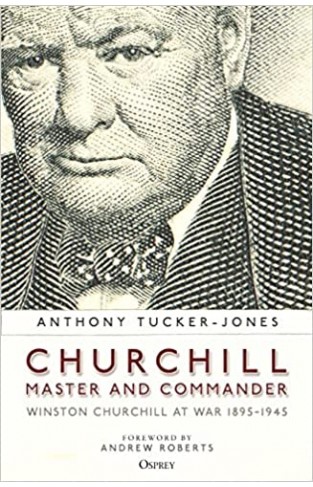
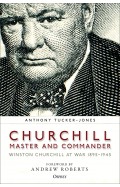
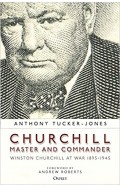
-120x187.jpg?q6)






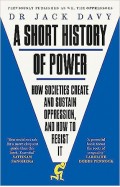
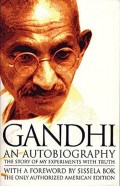

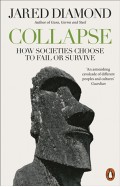

-120x187.jpg?q6)



-120x187.jpg?q6)



